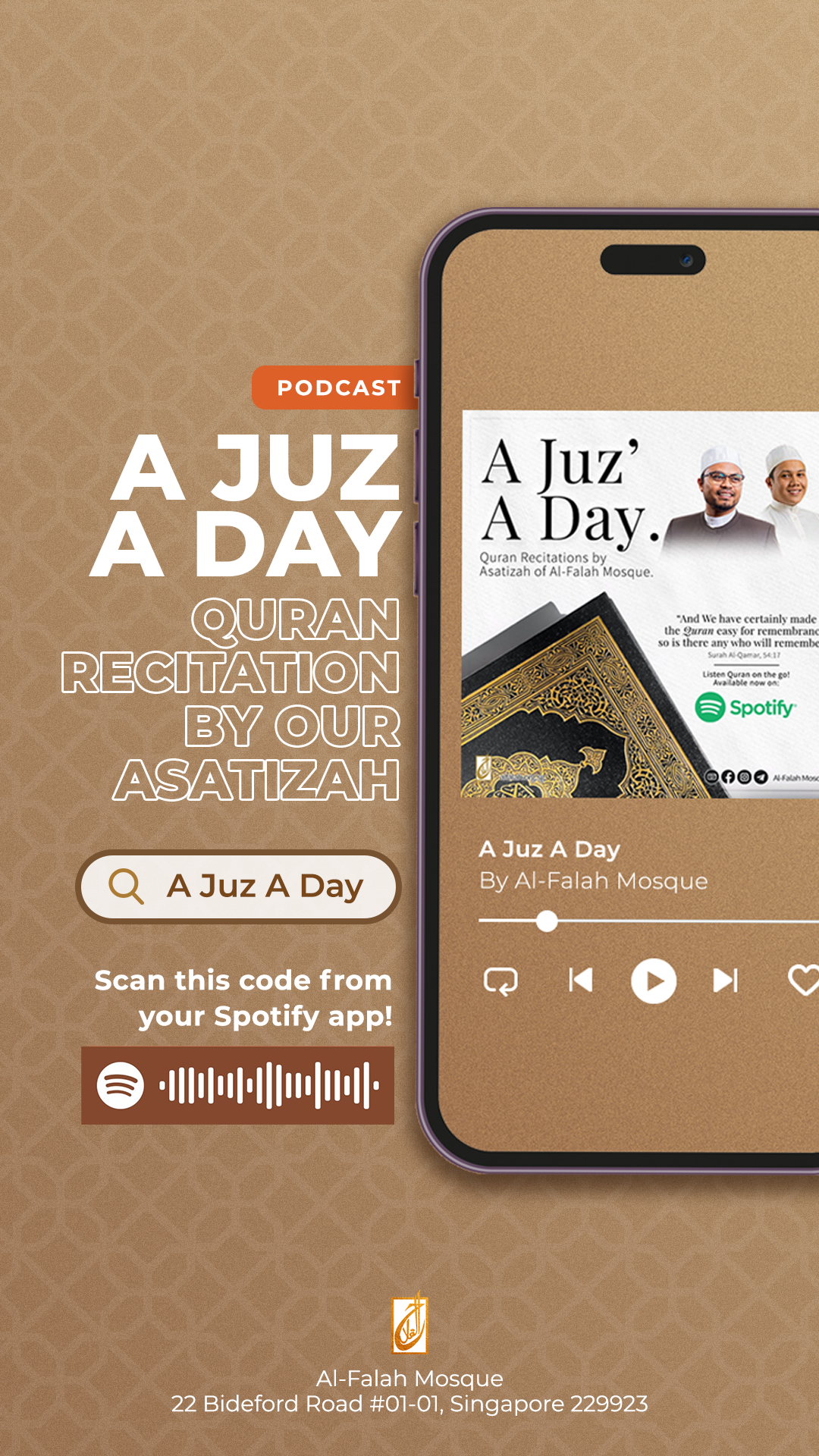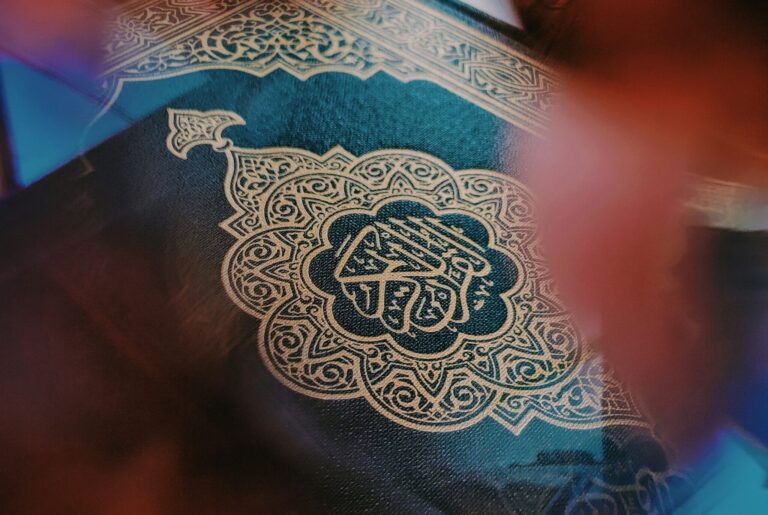Articles
Quranic Verses for Healing and Comfort
- BY Ustazah Noorsakinah Masrawi
- ON
- healing, comfort, quran, spirituality

Reading the Quran brings a unique sense of healing, comfort and ease. There is no doubt that it is a miracle that Allah has sent down through Prophet Muhammad (s.a.w). Allah (s.w.t) says in the Quran in Surah Israa verse 82:
وَنُنَزِّلُ مِنَ ٱلْقُرْءَانِ مَا هُوَ شِفَآءٌۭ وَرَحْمَةٌۭ لِّلْمُؤْمِنِينَ ۙ وَلَا يَزِيدُ ٱلظَّـٰلِمِينَ إِلَّا خَسَارًۭا
“We send down the Quran as a healing and mercy for the believers, but it only increases the wrongdoers in loss.”
(Surah Isra’ 17:82)
The Quran is a source of comfort to its readers that when you read it, you feel that Allah (s.w.t) is talking to you directly. Reflecting on this, we are truly fortunate to have this miracle to guide us in this life.
As we journey through this life, we inevitably encounter moments of sadness, fear and anxiety. We will face the trials of physical ailments and the grief of losing those we hold dear.
Daily, we encounter distressing news that overwhelms our minds and hearts.
Fortunately, we have access to healthcare and medicine, yet as Muslims, we believe in the healing power of Quranic verses. Prophet Muhammad (s.a.w) taught us how to use Quranic verses for holistic healing, addressing physical, psychological, and spiritual illnesses.
With firm conviction and His will, we will be able to heal from all sorts of sicknesses through these comforting and healing verses in the Quran. Here are some selected verses of the Quran that we can ponder upon and find healing through its lessons.
Surah Al-Anbiya’ verse 83
In Surah Al-Anbiya’ verse 83, Prophet Ayub (a.s) cried to Allah s.w.t and said:
رَبِّي أَنِّي مَسَّنِيَ الضُّرُّ وَأَنْتَ أَرْحَمُ الرَّاحِمِينَ
“I have been touched with adversity, and You are the Most Merciful of the merciful.”
(Surah Al-Anbiya’ 21:83)
Prophet Ayub (a.s) lived a good life and was blessed with abundance in the form of wealth, livestock, and children. Naturally, he was loved and honored by many until he was tested with an illness. His illness caused him to lose everything he had, yet he remained patient and never once showed anger and resentment towards Allah (s.w.t). In fact, he used what was left of him—his tongue and heart—to continuously remember Allah (s.w.t). Prophet Ayub’s story reminds us that all blessing that we enjoy are from Allah (s.w.t) and he can take away everything in a blink of an eye, if He wills.
Doesn’t this inspire us to be even more grateful for what we already possess? And isn’t it a comforting thought that even if we lose everything, what truly counts is our ability to remember Allah and worship Him?
Surah Al Baqarah verse 153
يَـٰٓأَيُّهَا ٱلَّذِينَ ءَامَنُوا۟ ٱسْتَعِينُوا۟ بِٱلصَّبْرِ وَٱلصَّلَوٰةِ ۚ إِنَّ ٱللَّهَ مَعَ ٱلصَّـٰبِرِينَ
O believers! Seek comfort in patience and prayer. Allah is truly with those who are patient. (Surah Al Baqarah 2:153)
It is beautiful how Allah (s.w.t) pairs patience and prayer together. When confronted with affliction or challenging situations, we often feel compelled to react negatively through our words, thoughts, and actions. Yet, Allah (s.w.t) reminds us that we don’t have to face these trials alone.
The Prophet (ﷺ) said, “The real patience is at the first stroke of a calamity.” (Bukhari)
By performing prayers, we recognise His greatness and express gratitude for His blessings and trials. It serves as the initial and crucial step before seeking Allah’s help and solace.
Surah Al-Fatihah
Surah Al-Fatihah is known to be the greatest Surah in the Quran as mentioned by Rasulullah (s.a.w) in the following hadith.
Abu Sa’id Ar-Rafi’ bin Al-Mu’alla (May Allah be pleased with him) reported:
The Messenger of Allah (ﷺ) said, “Shall I teach you the greatest Surah in the Qur’an before you leave the mosque?” Then he (ﷺ), took me by the hand, and when we were about to step out, I reminded him of his promise to teach me the greatest Surah in the Qur’an.
He (ﷺ) said, “It is ‘Alhamdu lillahi Rabbil ‘Alamin (i.e., Surat Al-Fatihah) which is As-Sab’ Al-Mathani (i.e., the seven oft- repeated Ayat) and the Great Qur’an which is given to me.” (Bukhari)
Surah Al-Fatihah is also known as the cure. During the time of the Prophet, a group of companions went on a journey and met a clan of Arabs whose chief was stung by a scorpion. The people were searching for a cure and one of the companions recited Surah Al-Fatihah. Rasulullah (s.a.w) was informed about the incident and said:
مَا كَانَ يُدْرِيهِ أَنَّهَا رُقْيَةٌ اقْسِمُوا وَاضْرِبُوا لِي بِسَهْمٍ مَعَكُمْ
How did you come to know that this (Surah al-Fatihah) could be used as a Ruqyah? So distribute them (amongst those who had been present there with him) and allocate a share of mine also. (Bukhari)
So, remember, the next time we are searching for a quick cure, read Surah Al-Fatihah with full conviction and inshaAllah, we will get better.
Surah Al-Ikhlas, Surah Al-Falaq and Surah An-Nas
These Surahs are also known as the 3 Quls. They are known to be a powerful set of Surah to repel against illnesses and evil eyes. It is recommended to recite these Surahs daily in the morning and in the evening.
“Whoever recites it three times in the morning will not be afflicted by any calamity before evening, and whoever recites it three times in the evening will not be overtaken by any calamity before morning.” (Abu Dawud, Tirmidhi, An Nasai).
It was also recited by the Prophet s.a,w when he was sick and blow over his body as narrated in the hadith below:
‘Ā’ishah (raḍiy Allāhu ‘anhā) narrated that whenever the Messenger of Allah ﷺ would become sick, he would recite [the last 3 Sūrahs of the Qur’ān] and then blow over his body. She says: “During his last illness from which he passed away, the Messenger of Allah ﷺ used to blow over himself. But when his sickness intensified, I used to (recite and then) blow over him using his own hands because of their blessings.” (Bukhari)
There are many other narrations that explain the benefits of the 3 Quls. Ultimately, we must acknowledge that with Allah’s will, the 3 Quls will be a powerful shield against any illnesses.
Surah Al Qasas Verse 24
Have you ever felt so helpless in your journey towards healing and in need of any kind of goodness that may come your way? Well, you are not alone. Such instance was also experienced by Prophet Musa (a.s) as he was in need of shelter, food, family and safety. So he recited the following verse from Surah Al Qasas verse 24 with heart full of humbleness and humility asking Allah s.w.t to grant him any kind of goodness (‘khair’):
رَبِّ إِنِّى لِمَآ أَنزَلْتَ إِلَىَّ مِنْ خَيْرٍۢ فَقِيرٌۭ
“My Lord! I am truly in ˹desperate˺ need of whatever provision You may have in store for me.” (Surah Al Qasas 28:24)
The next time we find ourselves going through tough times, turn to Allah humbly and ask Him for any kind of ‘khair’ and trust that He will grant the best for you.
Surah Al-Kauthar
Imagine losing your children one after another, and while you are grieving for your loss, your relatives are rejoicing at the fact that your lineage will be cut off. As painful as it sounds, this was just one of the horrible and upsetting things Rasulullah (s.a.w) faced when he became the Prophet.
Surah Al-Kauthar was revealed to the Prophet (s.a.w) as a gift and it rejects the claims of the people of Makkah who taunted the word ‘Abtar’ which means having no male offspring to the Prophet (s.a.w.).
Al-Kauthar means abundance and it refers to the abundance of this world and the hereafter including the river in Paradise which we, as his Ummah, will come for on the day of Judgement.
This hadith encapsulates the beauty of Surah Al Kauthar and its timely revelation to Prophet (s.a.w). Recorded in Bukhari, Muslim, Abu Dawud and Nasa’i, from Sayyidna Anas, that he said:
بینا رسول اللہ ﷺ بین اظھرنا فی المسجد اذ اغفی اغفاءۃً ، ثم رفع رأسه متبسّمّاً ۔ قلنا : ما اضحكك یا رسول اللہ ؟
قال : لقد انزلت علیّ آنفاً سورة فقرأ بسم اللہ الرحمٰن الرحیم انّا اعطینٰك الکوثر الخ ثم قال : اتدرون ما الکوثر ؟ قلنا : اللہ و رسوله اعلم ۔ قال : فانّه نھرٌ وعدنیه ربّی عزوجل علیه خیر کثیر ۔ وھا حوض ترد علیه امّتی یوم القیامة ۔ آنیته عدد نجوم فی السّماء ۔ فیحتلج العبد منھم ۔ فاقول : ربّ انّه من امتی فیقول : انّك لا تدری ما احدث بعدك ۔
“While we were with the Messenger of Allah ﷺ in the mosque, he went into some kind of slumber or doziness. Then he lifted his head smiling. We asked: ‘O Messenger of Allah! What has caused you to smile?’ He replied: ‘A Surah has just been revealed to me.’ Then he recited Bismillah and Surah Al-Kauthar. Then he asked: ‘Do you know what is Al-Kauthar?’ We replied: ‘Allah and His Messenger ﷺ know best,’ He said: ‘It is a river that my Lord, the Mighty and Majestic, has promised me and it has abundant goodness. It is a fountain where my Ummah will come on the Day of Judgment. Its containers are as numerous as the stars in the sky. Then a servant of Allah from among them will be prevented from it, and I will say: ‘0 Lord! Verily, he is from my Ummah [ followers.] ‘Then Allah will say: ‘You do not know what he introduced [ or innovated ] after you.’
Prophet (s.a.w) went through so much distress throughout his prophethood. This Surah serves as a reminder to us that Allah’s mercy and rewards far outweigh any temporary difficulties we may encounter in this life. His divine promise of abundance and goodness are reserved for those who believe and do righteous deeds.
Surah Al-Anbiya’ Verse 87
وَذَا النُّونِ إِذ ذَّهَبَ مُغَاضِبًا فَظَنَّ أَن لَّن نَّقْدِرَ عَلَيْهِ فَنَادَىٰ فِي الظُّلُمَاتِ أَن لَّا إِلَٰهَ إِلَّا أَنتَ سُبْحَانَكَ إِنِّي كُنتُ مِنَ الظَّالِمِين. فَٱسْتَجَبْنَا لَهُۥ وَنَجَّيْنَـٰهُ مِنَ ٱلْغَمِّ ۚ وَكَذَٰلِكَ نُـۨجِى ٱلْمُؤْمِنِينَ
“And (remember) when the Man of the Whale stormed off (from his city) in a rage, thinking We would not restrain him. Then in the (veils of) darkness, he cried out, “There is no god (worthy of worship) except You. Glory be to You! I have certainly done wrong.” So We answered his prayer and rescued him from anguish. And so do We save the believers.”
(Surah Al-Anbiyaa’, 21:87-88)
If you ever wondered how it feels like to be in the belly of a whale, you can look back at the story of Prophet Yunus a.s. Its darkness is extremely intense that he cried to Allah s.w.t:
“There is no god (worthy of worship) except You. Glory be to You! I have certainly done wrong.”
With a heart full of sincere regret and repentance, Prophet Yunus (a.s) asked Allah for forgiveness. Likewise, when we are confronted with dire circumstances where solutions seem elusive, it is best that we seek repentance from Allah and find solace and guidance in His mercy. It is only through His pleasure that we discover true happiness and achieve success in life.
This list of Quranic verses is certainly not exhaustive, but it can serve as a starting point for reflection as we journey through life. The stories and wisdom behind these verses should empower us to move forward and strengthen us from within as we face life’s challenges. May these Quranic verses inspire us to delve deeper into the Quran, finding solace and comfort on our healing journey.
Disclaimer
Support Our Dakwah










